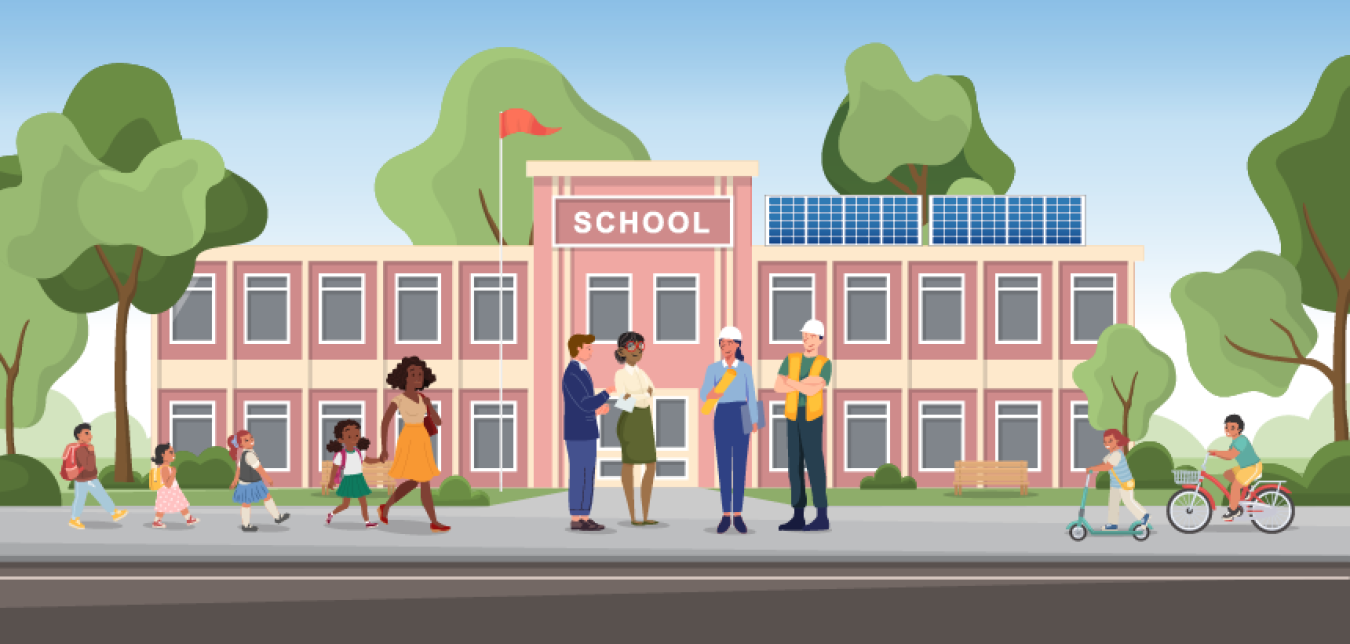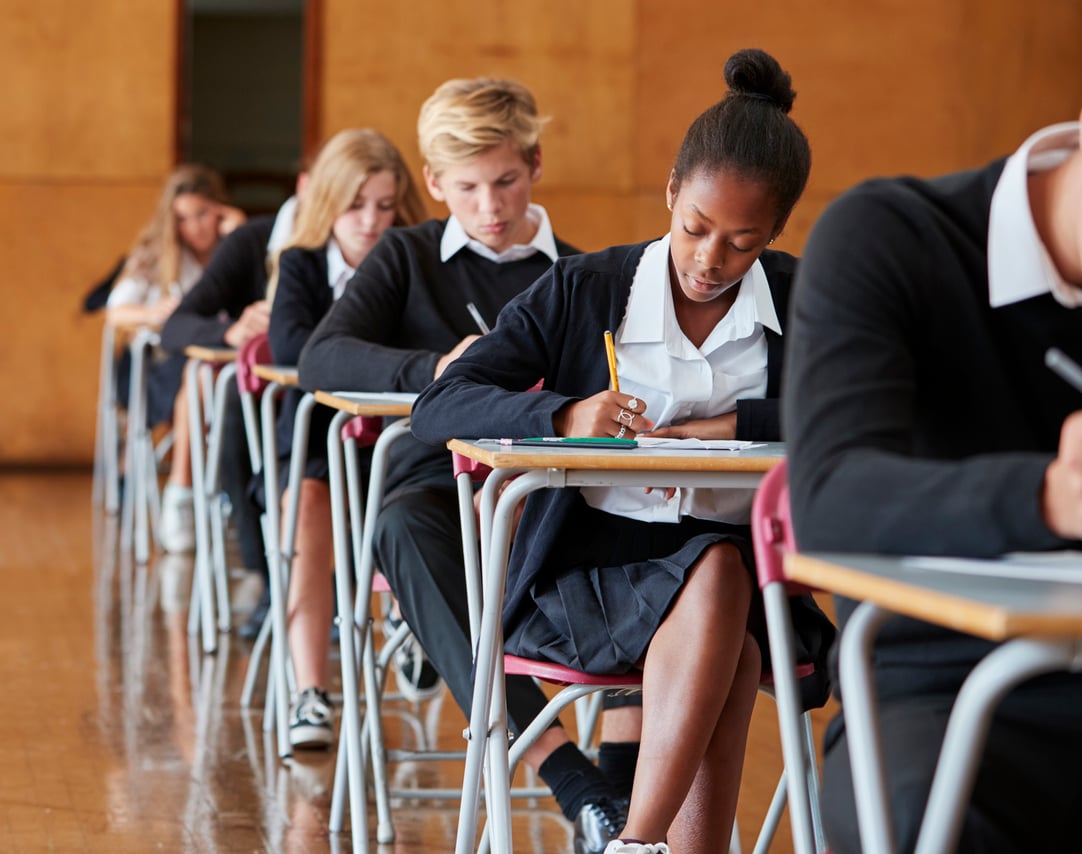The Relevance of Local Assistance to Save Temecula Schools Today
The Relevance of Local Assistance to Save Temecula Schools Today
Blog Article
The Effect of Institution Environments on Academic Success and Personal Wellness
The style of educational spaces, including all-natural lighting and ergonomic furniture, can improve trainees' focus and convenience. Exactly how can colleges purposefully enhance these facets to better sustain their pupils?
Physical Format and Design
Exactly how does the physical format and style of a college effect academic success? The plan and visual of a school setting can substantially influence trainees' knowing outcomes.
All-natural illumination and efficient air flow systems are crucial in improving cognitive function and reducing absenteeism. Researches have actually shown that classrooms with ample natural light improve student focus and reduce sensations of drowsiness. Furthermore, ergonomic furnishings tailored to trainees' needs can protect against physical discomfort, permitting long term emphasis and engagement in scholastic activities.
Access to outdoor rooms and aesthetically pleasing environments likewise play an essential duty - Save Temecula Schools. Green rooms and properly maintained school grounds supply chances for physical workout and psychological relaxation, both of which are necessary for preserving high degrees of academic performance. Essentially, an attentively developed physical setting can work as a stimulant for academic excellence, cultivating an atmosphere that supports both teaching and understanding
Class Ambience
A favorable classroom ambience is basic to attaining academic success. An atmosphere that promotes a sense of safety, inclusivity, and shared respect motivates students to engage more proactively in their discovering procedures. The atmosphere of a class, consisting of facets such as illumination, sound levels, and seating plans, can substantially impact student concentration and inspiration. A well-ventilated, well-lit class with minimal disturbances can improve cognitive feature and minimize tension, thereby promoting better scholastic results.
Additionally, the classroom ambience need to sustain a culture of collaboration and open interaction. When trainees feel comfortable expressing their ideas and asking inquiries, they are more probable to involve deeply with the material and develop vital thinking abilities - Save Temecula Schools. Peer communications and group activities can improve discovering by offering varied point of views and cultivating team effort
Furthermore, developing consistent regimens and clear assumptions can create an organized environment that allows trainees to concentrate on their studies. By minimizing uncertainty and providing a predictable framework, trainees can better handle their time and obligations. Eventually, a favorable classroom environment not just enhances academic efficiency yet also adds to the overall wellness of trainees, preparing them for future academic and personal endeavors.
Teacher-Student Relationships
Structure on the relevance of a positive class ambience, the connections in between instructors and trainees play a crucial duty fit academic success. A healthy and balanced teacher-student connection promotes a learning setting where trainees feel valued, recognized, and supported, which substantially improves their inspiration and interaction. When students view their educators as compassionate and approachable, they are more probable to participate actively in course and look for assistance when needed, adding to a much deeper understanding of the subject.

Efficient interaction is vital to nurturing these connections. Teachers that utilize open, considerate, and regular interaction develop a foundation of trust. This trust fund enables trainees to reveal their ideas and issues easily, cultivating a collective knowing setting. In essence, strong teacher-student partnerships are a foundation of academic success, playing a vital duty in both scholastic achievement and personal investigate this site development.
Peer Communications
Peer interactions significantly influence scholastic success by forming a student's cognitive and social development. Within the institution setting, peer connections function as a foundational part for discovering and individual growth. Positive peer interactions can enhance a pupil's inspiration and engagement in scholastic activities through joint discovering and common assistance. When trainees interact in team settings, they exchange concepts, solve problems jointly, and create important thinking skills. Such interactions foster a feeling of belonging and neighborhood, which is necessary for emotional health and scholastic willpower.

Reliable peer communications additionally contribute to the development of essential life skills, such as interaction, participation, and conflict resolution. These social expertises are critical for both academic success and individual well-being, underscoring the value of cultivating positive peer characteristics within the institution environment.
After-school Activities
Participating in after-school activities plays click for more a pivotal duty in a pupil's academic success and personal growth. These tasks, ranging from sporting activities teams to discuss clubs, use trainees possibilities to develop useful skills such as leadership, time monitoring, and synergy. Research constantly suggests that trainees that get involved in after-school activities tend to achieve greater academic efficiency. This connection is typically connected to the organized setting and the technique called for to balance both extracurricular and scholastic dedications.
Furthermore, extracurricular involvement fosters a sense of belonging and neighborhood, which is crucial for individual wellness. Taking part in team tasks enables trainees to build and enhance social media networks, boosting their social and emotional intelligence. These interactions are vital for developing social skills that are advantageous in both scholastic and future professional settings.
Additionally, extracurricular activities supply a useful outlet for trainees to explore their passions and interests beyond the common educational program. This exploration can cause the exploration of brand-new talents and prospective job paths, even more inspiring trainees to involve more deeply in their academic work. Finally, the role of extracurricular tasks extends beyond simple recreation; they are indispensable to fostering an all natural educational experience that promotes both scholastic success and personal growth.
Conclusion
Thoughtfully developed physical formats and classrooms, along with favorable teacher-student relationships and positive peer Homepage communications, substantially boost pupil inspiration and engagement. These elements collectively highlight the significance of creating and maintaining optimum school atmospheres for the benefit of pupils' scholastic and personal development.
Ultimately, a positive class atmosphere not only improves academic efficiency however also contributes to the total well-being of pupils, preparing them for future academic and individual undertakings.

Report this page